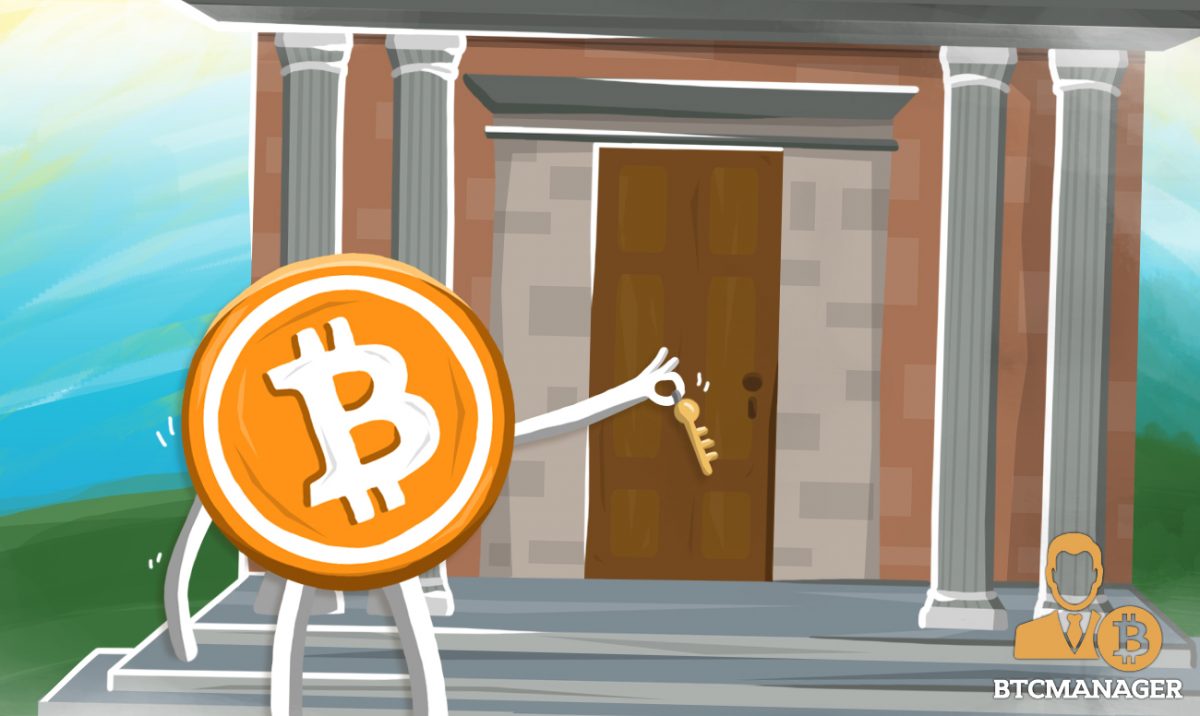Buying a House With Bitcoin? There Are Ways to Make It Work

During 2017, there were some high profile luxury properties that went up for sale in exchange for bitcoin. For example, high-rise apartments in Dubai, an exclusive townhouse in London, and even a medieval castle on the Spanish coast went on sale accepting the digital cash as payment. But what if you are just a small fish in a sea of whales, and you want to buy a humble abode? Is buying with bitcoin an option?
Volatility a Major Concern
A primary concern with using bitcoin on a large purchase like a house is that the valuation or trading price of bitcoin can change on a day to day basis. Large swings of up to 100 percent in a month have become the norm.
It’s for this reason that most people would probably avoid dealing in crypto for something as expensive as a house. For instance, if one were to have used bitcoin to buy a house when bitcoin was near $20,000 each, and then the value of bitcoin drops as it did in December to just over $10,000, the seller of the house could’ve potentially lost 50 percent of the value.
The medieval castle in Spain, Palacio Bardaji, was listed at a sale price of 1,850 bitcoin. At the time that this pricing was announced, that would’ve been around $10-12 million. At today’s valuation, however, that would be almost $30 million, tripling in price.
Buying With Bitcoin
Volatility aside, what is involved in buying a house with bitcoin? The answer, according to CNBC, it’s nothing more than an agreement to accept bitcoin in exchange for the sale of the home.
The article cites a case from last year where a single-family home in Austin, Texas was purchased with bitcoin. In that case, though, the seller didn’t want the digital cash, but US dollars. As a result, the buyer and seller made the deal using a company called BitPay.
The exchange service allowed the buyer to send bitcoin and the seller to receive US dollars in return. Services like this could allow for those who are wealthy in cryptocurrencies to purchase big ticket items like real estate or cars without necessarily needing the seller to accept cryptocurrency directly.
Some buyers, however, are interested in receiving bitcoin exclusively. One example is Benjamin Shaoul of Magnum Real Estate Group in New York City. The company converted an old building into new condominiums and is accepting bitcoin payments directly from several buyers. Shaoul also mentioned that he is intent on keeping the bitcoin proceeds in their original form.
Doing the Deal
One unique challenge that these articles do not mention, however, is the issue of transaction immutability.
In simple terms, this means that if something were to go wrong with the transaction, perhaps not from a technical perspective but a contractual one, any bitcoin or another cryptocurrency that is sent cannot be returned unless the seller willingly returns it.
While so far unprecedented, a sufficiently enterprising criminal organization could find an abandoned house, fix it up just enough, then pose as a real estate agent and sell it for bitcoin. After receiving the bitcoin, they could provide a fake homeownership contract, but the buyer is actually getting nothing, as they would not be purchasing the house from the legal owner.
As the transaction was done in bitcoin, even when authorities get involved, there would be no recourse. Again, as far as we know this has never happened yet, but this style of fraud is not unheard of entirely.
The conclusion of the article? Yes, you can buy traditional real estate with non-traditional money. It may not be quite as straightforward as using traditional fiat currency. However, it is not impossible, and over time as adoption continues to increase, it should become even easier. Like with any bitcoin transaction though, buyers should be aware of the risks.















